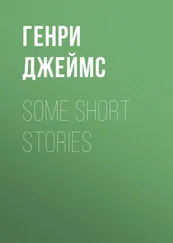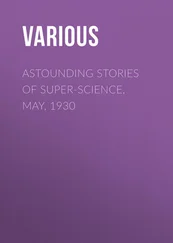Alek still couldn’t believe Olya and Marina were leaving when they said good-byes at the airport. Vasily Petrovich had come, too, probably to make sure Alek didn’t do anything else stupid. From the bus that took them to the airplane, Olya spotted Alek’s slumped gray figure in the crowd of passengers’ families. He was waving along with the others. He wore the winter greatcoat to conceal his bandaged wrists, which made him look especially sad on such a bright spring day.
As the plane was about to take off, Olya looked one last time at the volcanoes in the distance. For a second, it seemed as if the clouds had thickened above one of the tops. She squeezed Marina tighter to her chest. Petropavlovsk-Kamchatsky was even grayer from the air than from the ground. The naked trees on the snow-covered mountain slopes looked like patchy stubble on a giant’s sallow cheek. The plane broke through a layer of clouds and the city, the crater of her marriage, disappeared.
* * *
Back home, everything was understood and all the questions were now asked. Olya’s sisters were ecstatic to have her back and fought over who would get to babysit Marina. One of Olya’s classmates was taking the entrance exams to the surgical facultet at the Stavropol Medical University and dared Olya to try, too. What if? She needed to move on — and quickly. Besides, she already knew she wasn’t afraid of blood. All summer Olya reviewed the old chemistry and physics textbooks at the library. Zoya’s boyfriend had to pull some strings: Olya got in. The surgical facultet ended up with an overflow of qualified candidates, and she was offered a year-long deferral or a transfer to the dental course, which was four years shorter. The choice was clear.
While in school, Olya lived with her parents. Both Dasha and Zoya had married soon after Olya’s return (although she had counseled them about the perils) and moved out. That first summer back was sweltering. In the evenings, Olya studied on the bench in the courtyard while Marina slept in her stroller under a jasmine tree, clearing her chronically stuffed sinuses of volcanic ash. Then came the opulent fall again, with its maple-leaf tracks of phoenix the firebird. Every morning, when Olya went to medical school, her mother took Marina to the nursery under a shower of golden leaves and chestnuts in the park. In time, Olya’s stepfather taught Marina to ride a bicycle. Olya and Marina slept together for years in the sisters’ big old bed and were happy.
In her thirties, Olya moved to Syktyvkar, in the north of Russia, and soon became the chief doctor of a polyclinika . It was considered improper for a woman in her position to be single, so she got married again — this time to a doctor, a man of another so-called noble profession. Her second husband chased every skirt at his hospital and had a five-year affair before they finally divorced, but it was his miserly ways that offended her most. The days when she would open the fridge and see his name written on cartons of milk and packages of cheese and ham that he had bought on his salary, she thought of Alek — how he gave her all his money and was content as long as he had his Belomorkanal cigarettes.
Many more years later, Baba Olya, as she was now called, retired from her post as the chief doctor and returned to Stavropol, to live closer to her sisters. They got together often at one of their apartments or Zoya’s dacha and talked of the past. All three agreed that their childhood and youth had been happy. Zoya never did have children, and Dasha, poor little Dashen’ka, had in the same year lost her husband, the engineer, to a heart attack and both of her grown children. Vityok, her son, was poisoned by a drug addict friend, who knew that Vityok had money in the house after selling his car. Her daughter, Tamara, was stabbed by a boyfriend in a drunken fight.
Now and then Olya’s thoughts drifted to Kostya and her second husband, but most often she thought of Alek. It was inconceivable to her that she, who spent her whole life taking care of people, had once almost let her husband bleed to death in front of her eyes. His good and open heart seemed like the most important quality a person could possess, and she now felt something for him akin to loving pity. Maybe, in due course, Alek would have gambled away his youthful folly.
Other times, she shuddered at the tragic cliché that was her first marriage.
Olya saw Alek again once, several years after their quick divorce. He was in town visiting his elderly mother and turned up at Olya’s to beg her to return. She was about to go grocery shopping and had just put on her signature strawberry lipstick. He looked at her with a stranger’s voracity, as though he was seeing a beautiful woman for the first time. She refused. Her mother had always said, If he hits you once, he’ll hit you again .
He asked whether he could see his daughter. “She’s on vacation on the Black Sea with my parents,” Olya lied. Marina was doing her homework just two closed doors away.
“Next time, then,” Alek said. His eyes were still mischievous but tired.
Olya never tried to find him. She didn’t want his money. She didn’t want anything from him. A few months after his visit, she heard through the town’s rumor mill that some woman had come to Stavropol in search of Alek, claiming to be pregnant by him. Another naive soul trying to capture an officer.
To entertain your wife, become a soldier.
The Uncatchable Avengers,1993
“ Tak, children, we are almost ready to begin. Let’s go over this again,” the mustachioed producer said. “When I say ‘Silence in the studio. Cameras rolling. Action!’ the performer Anna Glebovna calls should come up to the piano, say your name and age, the piece you’re going to play, and who it’s by—”
Dima snorted. A couple of the other children giggled.
“Oleg Borisovich, it’s the Children’s Festival of Tchaikovsky, so every piece will be by none other than the esteemed Pyotr Ilyich,” Anna Glebovna said to the producer. Dima had recognized her from prior citywide competitions and recitals. She was the director of the Magadan Children’s Music School #1.
The producer scanned the list on his clipboard, as if looking for Tchaikovsky’s name. He wore tight black jeans, a green turtleneck sweater, and, over this, a black corduroy blazer. There was something cockroachy about him. Dima cringed. He was the first on the list, and he just wanted to get it over with. He had more heroic things to do after the taping.
“Tchaikovsky, Pyotr Ilyich Tchaikovsky,” Anna Glebovna sang out. The children laughed again but were quickly shushed by their parents and piano teachers from the back rows.
“Yes, yes, of course. Say your name, your age, the title of your piece. Sit down at the piano — please, try not to drag the stool across the floor — and play. When you’re done, take a bow and go back to your chair. That’s it. Don’t run. And please, audience, nobody talk until I say ‘Cut.’”
“Any questions, children?” Anna Glebovna said. “Let’s show our TV station what we can do, ah? Oleg Borisovich here will also send the tape to Moscow, and Moscow might broadcast clips from our little festival to the whole country. How would you like to be famous?”
Dima’s piano teacher, Faina Grigorievna, had once told him that Anna Glebovna was the worst pianist ever to hold an academic position in the history of musical education, and that she was a hack. Dima wasn’t sure what a hack was, but in her ruffled red dress Anna Glebovna sure looked like one.
“One more thing,” the producer said. “Audience, very important. Don’t forget that you are on camera, too. Please look like you’re enjoying the music. In the final segment, we may cut to reaction shots at any time, so children: no making faces or picking your nose.”
Читать дальше
Конец ознакомительного отрывка
Купить книгу












